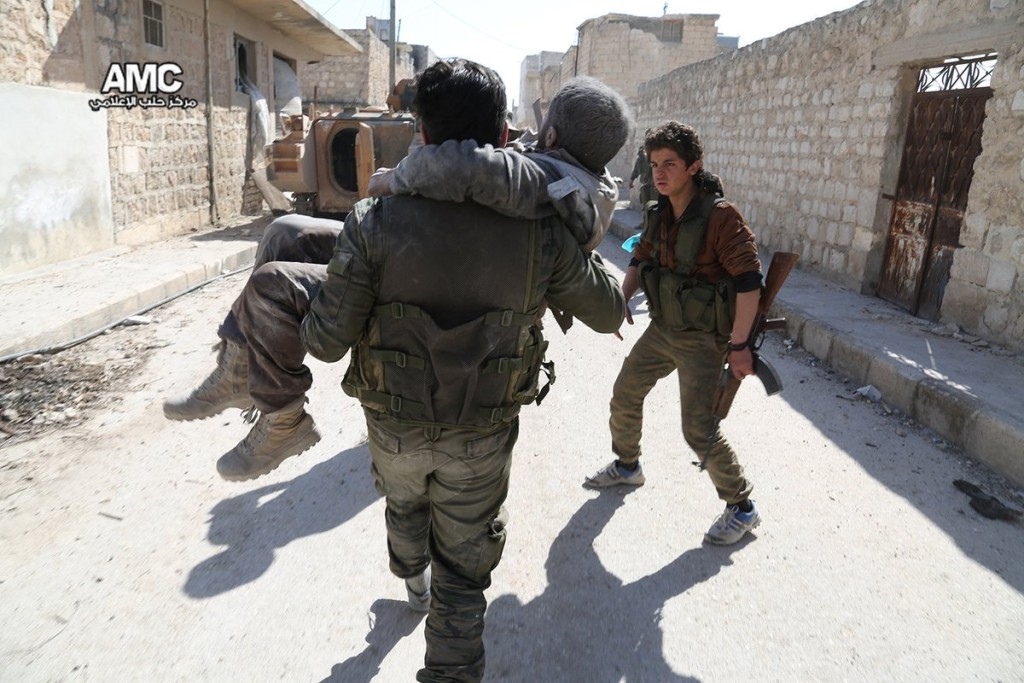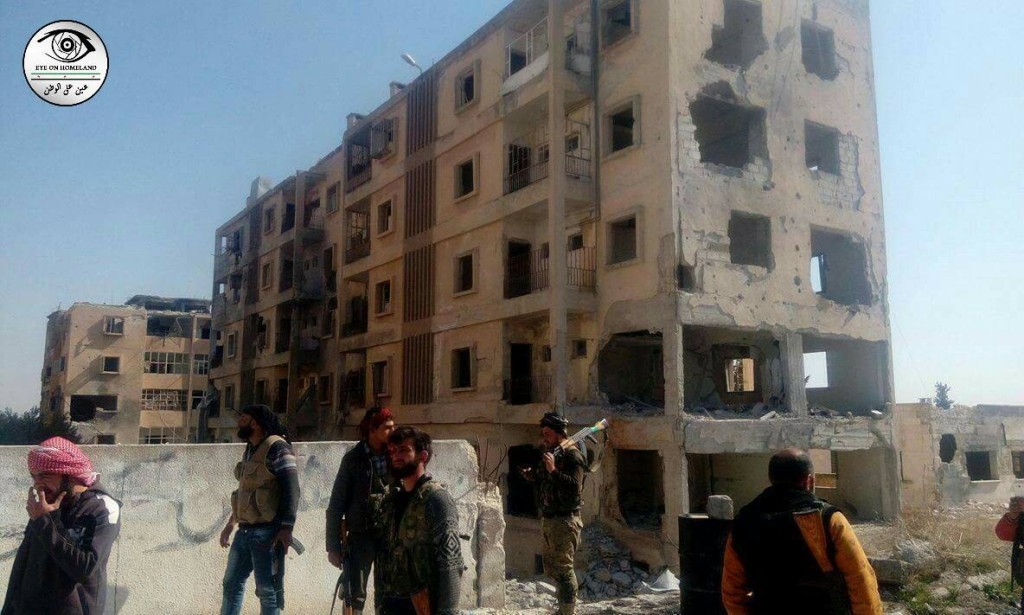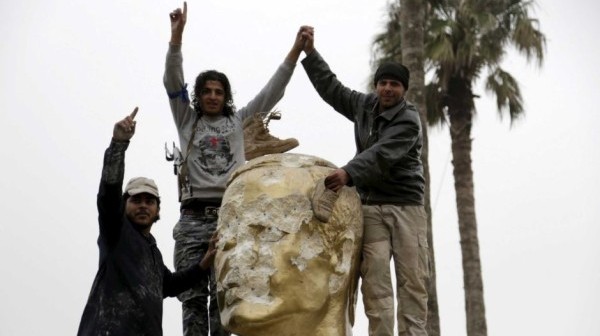CIA cut weapons and supplies to rebels in northwest Syria amid clashes with jihadists in January
LATEST
- Opposition Condemns Regime Blocking & Seizure of Aid to Al-Wa’er in Homs
- Turkish-Rebel Force Claims Advance to Center of Al-Bab
- UN: Talks to Include “Political Transition Process”
Rebels in northwest Syria say CIA-coordinated military aid has been frozen since last month.
Rebel officials said the cut-off came amid clashes with the jihadists of Jabhat Fatah al-Sham. They said that no official explanation was given, although they believed the main objective was to prevent arms and cash being taken by JFS, known as Jabhat al-Nusra until it ended formal allegiance to Al Qa’eda in July 2016.
Two US officials said the suspension was because of the JFS attacks. It includes salaries, training, ammunition, and guided anti-tank missiles, some of which was provided by Turkey, Qatar, and Saudi Arabia.
“The reality is that you have changes in the area, and these changes inevitably have repercussions,” said an official with a Free Syria Army faction. He said no military assistance could “enter at present until matters are organised. There is a new arrangement but nothing has crystallised yet.”
The clashes eased after JFS became part of the bloc Hay’at Tahrir al-Sham, which was joined by some rebel factions. Ahrar al-Sham, the leading faction, took in other groups and provided them protection from any attacks.
The US reduced assistance to rebels in northern Syria from late 2015, switching most of its backing to the Kurdish-led Syrian Democratic Forces, which have pushed back the Islamic State in northeastern Syria and moved into former opposition-held areas.
Washington has also sharply limited aid to rebels in southern Syria since summer 2015. Last week rebels defied the US-led Military Operations Command, based in Jordan’s capital Amman, by launching attacks against the Assad regime in Daraa city, on the Jordanian border. The rebels said they had to act because of an imminent pro-Assad offensive to seize more territory along the border.
See Rebels Strike in Southern Syria for 1st Time in Months
TOP PHOTO: Rebels celebrate the capture of Idlib city, March 2015
Opposition Condemns Regime Blocking & Seizure of Aid to Al-Wa’er in Homs
The opposition Syrian National Coalition has condemned Monday’s blocking of an aid convoy, en route to the besieged al-Wa’er district of Homs city, by pro-Assad forces.
The convoy was stopped by shelling, as humanitarian workers were fired upon by snipers. As they returned from Homs, the trucks were again halted and aid seized, reportedly by an Iran-back militia.
See Syria Daily, Feb 21: Regime Snipers Block 1st Aid Convoy in 5 Months to Besieged al-Wa’er in Homs
The shipment would have been the first to al-Wa’er, the last opposition area in Homs, since September.
The Coalition called on the UN to enforce resolutions mandating access to besieged areas with protection of convoys. It also said airdrops are necessary.
The UN’s coordinator of Syrian operations, Jan Egeland, tweeted:
Only besieged #Syrian area reached so far in 2017 is Deir ez Zour through airdrops. Convoys denied, blocked, bombed, sniped at and looted.
— Jan Egeland (@NRC_Egeland) February 22, 2017
Turkish-Rebel Force Claims Advance to Center of Al-Bab
A Turkish-rebel offensive is claiming an advance to the center of ISIS-held al-Bab on Wednesday evening.
The force said it now controls the city center’s “Security Square”, including the court, military and security buildings, cultural center, post office, and Officers Housing.


The offensive, launched in early December, finally broke into the city earlier this month but has faced stiff resistance trying to move beyond the 40% taken in initial advances.
Al-Bab is the Islamic State’s last major position in Aleppo Province. It has also been a possible target of a pro-Assad offensive just south of the city.
Syria Daily, Feb 9: Turkish-Rebel Force Closes on ISIS in Key Town of al-Bab
Free Syrian Army fighters move civilians out of the city:
#FSA Sham Front evacuating civilians from Al-Bab, mainly women & children. Many still trapped in city's central districts. pic.twitter.com/lf5c93eOdH
— Qalaat Al Mudiq (@QalaatAlMudiq) February 21, 2017
UN: Talks to Include “Political Transition Process”
Amid a series of contradictory statements over this week’s political talks, a UN official said on Tuesday that the discussions in Geneva will include a “political transition process”.
Last week other UN representatives said “political transition” was no longer included, pointing to an acceptance of President Assad remaining in power as part of a resolution to the six-year conflict.
UN envoy Staffan de Mistura appeared to maintain that line on Sunday, saying discussions would focus on a new constitution, free and fair elections under UN supervision, and arrangements for effective governance.
See Syria Daily: UN Drops “Political Transition”
However, De Mistura’s chief of staff Michael Contet told a regular UN briefing yesterday:
The invitations as well as the substantive agenda for the negotiations are all based on the wide scope of Security Council resolutions, in particular (U.N. Security Council Resolution) 2254, which is our main guidance in this process.
“The second operative paragraph of 2254 requests the special envoy to convene formal negotiations on the political transition process.
Contet declined to take questions.

